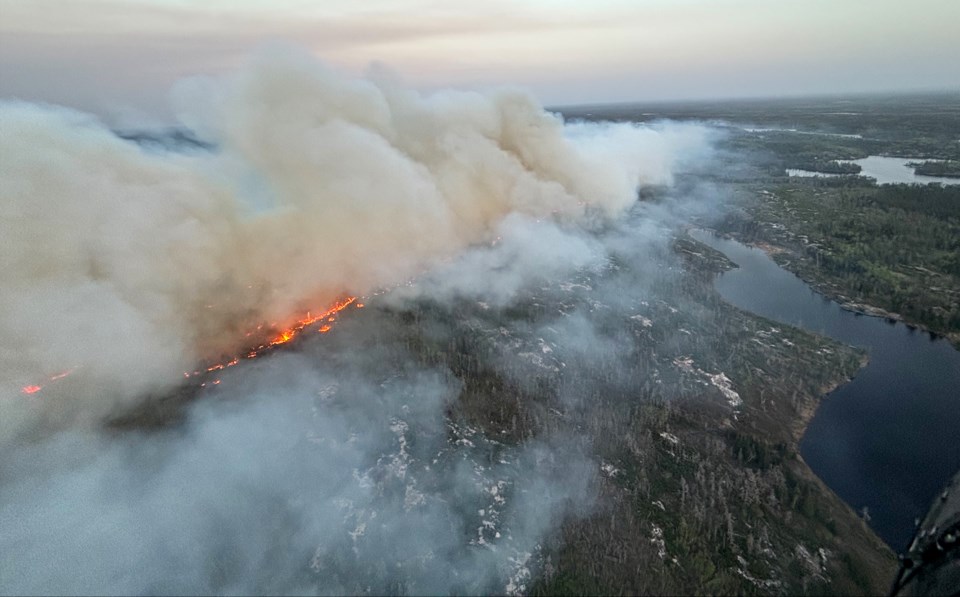KENORA — National weather officials say practically all of Northwestern Ontario, including Thunder Bay, is under a special air quality statement due to smoke from wildfires burning throughout the region.
As of Thursday afternoon, Environment Canada had statements in effect from the Manitoba border east through the Lakehead and as far east as Marathon along the North Shore and Hornepayne further north. The statements extended well into the far north, north of communities like Kasabonika Lake and Bearskin Lake.
Trudy Kidd, a meteorologist with Environment Canada, said the poor air quality can cause greater health risks.
“The suggestion is to limit time outdoors, which I feel like, if you're experiencing common symptoms of wildfire smoke exposure like eyes, nose and throat irritation or headaches, you're going to want to stay inside anyway,” she said.
“People at more risk of having these health effects would include people 65 and older, pregnant people, infants and young children and particularly people with existing conditions like lung disease, cancer, et cetera.”
Health Canada’s Ontario office also issued a wildfire smoke bulletin, urging people to take precautions.
“Wildfire smoke can travel thousands of kilometres from a fire zone and is a major source of harmful air pollutants,” the statement said. “There is no safe level of exposure for most of these pollutants. Smoke can cause negative health effects even at very low levels when we may not be able to see or smell it.”
Health officials recommend the following precautions:
- Check local weather advisories and air quality conditions
- Protect indoor air quality by ensuring proper ventilation and using an air purifier
- Limit outdoor activity and/or wearing a well-fitting respirator when outside
- Keep cool in combined wildfire smoke and heat
- Access mental health supports
Environment Canada said people having a medical emergency should seek immediate medical help.
Kidd said the far north, including areas like Webequie, Nibinamik, Kitchenuhmaykoosib Inninuwug, Bearskin Lake and Kasabonika Lake, could see the statement end sooner than areas to the south, as a cold front is expected to pass through more northerly parts of Ontario.
“That’s going to allow for cooler, fresher air to replace the smoky air,” Kidd said. “But for those more southern areas of Northwestern Ontario and north of Lake Superior and particularly areas closer to the Manitoba border, smoke could last into Saturday, possibly, as winds will continue keeping the smoke in those areas.”
“For them, we expect conditions to improve on Sunday when the wind shifts a bit.”
Kidd said there’s no significant precipitation expected in any long-term forecasts. She added that areas currently not affected by the air quality statements should watch for the potential for alerts to be expanded as smoke could continue to drift.
“Right now, it's really hard to say how long communities in the north will be dealing with smoke from the forest fires,” she said.
“I think there needs to be probably a significant amount of rain, and as long as the fires persist, then the smoke will persist, and smoke goes along with the wind.”
Fire bans are in effect across much of the Northwest and are expanding as of Friday.
